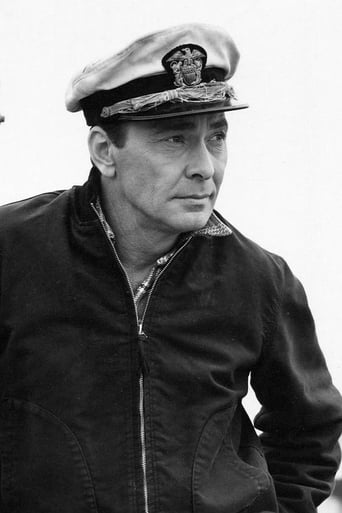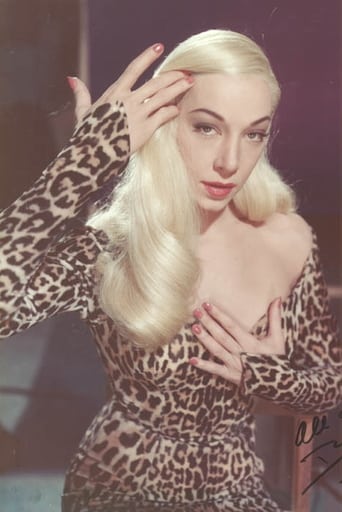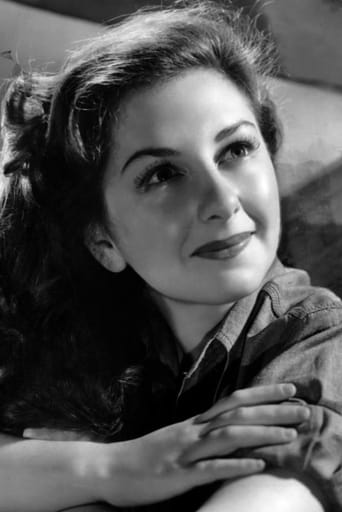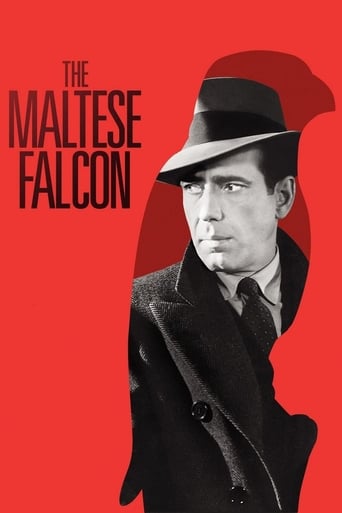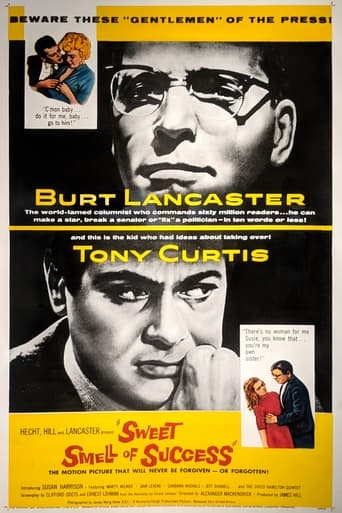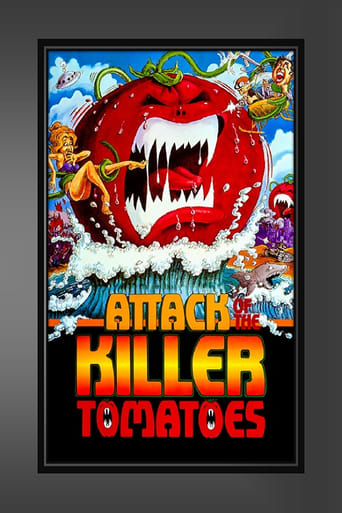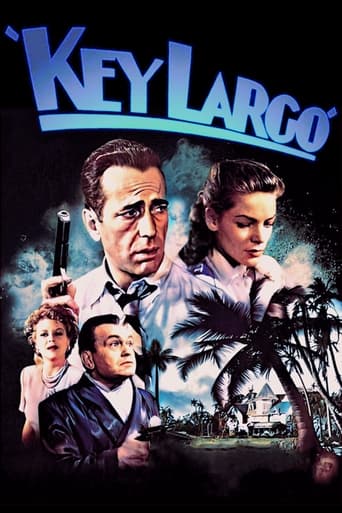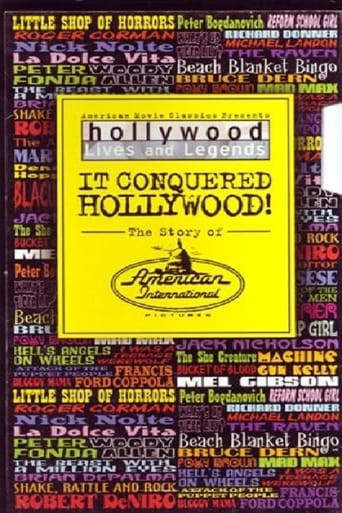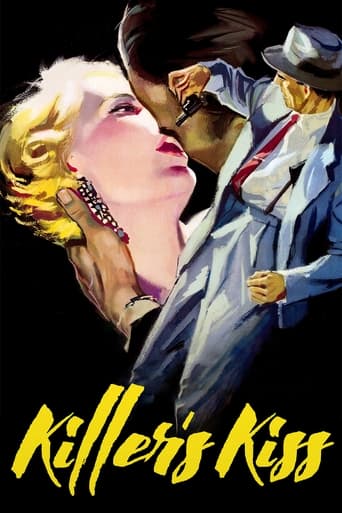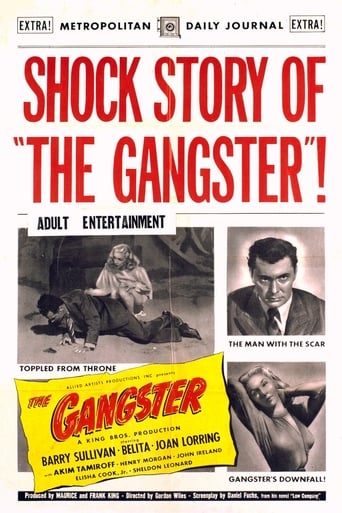
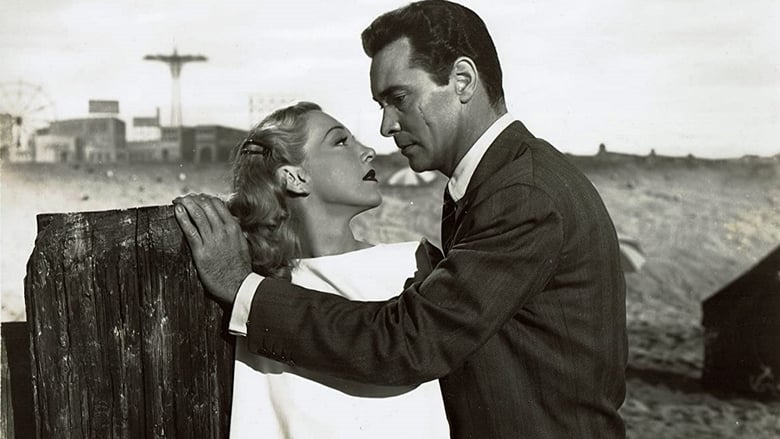
The Gangster (1947)
Based on the novel Low Company. One of the most peculiar film noirs of the 1940s stars Barry Sullivan as a small-time hood who suffers a mental breakdown as his big plans begin to crumble. Beautiful Belita is the slumming society girlfriend who only fuels his paranoia.
Watch Trailer
Cast
Similar titles

Reviews
Touches You
So much average
Simply Perfect
As Good As It Gets
What a load of awful characters. Charles McGraw is good as always with a brief appearance as a thug as is Sheldon Leonard (Cornell) as a gangster boss. Outside of these two, the only others of any note are Fifi D'Orsay as an elderly suitor for the idiotic character that is Harry Morgan's soda jerk. She gets one brief scene which provides the funniest moments of the film as she throws him out of her apartment. The other cast member of note is an uncredited Shelley Winters who plays a cashier for about 30 seconds of screen time. Given that most of the film contains the other lot in this film, that's not a good sign.The film follows unpleasant Barry Sullivan (Shubunka) as he loses hold of his small-time crime empire. It's impossible to identify with him just as it is impossible to identify with anyone else. The film is boring and confusing at the beginning as the dialogue isn't delivered in a particularly clear manner. I'm not going to namecheck the duds in this film as it would take too long. Didn't care for any of the characters and the story wasn't too gripping. A waste of time for all involved. I guessed the girlfriend Belita (Nancy) plot line pretty early on so no mystery there either. She also sings a boring song.
It doesn't happen very often, but it did here. The film's narrator and principal character, self-described crime kingpin Shubunka portrayed by Barry Sullivan, winds up dead at the end of the picture. How he gets to tell his story is a bit of a disconnect, but if that's something you can overlook, the ride is worth it.One never knows what you'll get with one of these Poverty Row efforts but this one looks like a keeper, due principally to it's great black and white photography, noir elements and a rather fine supporting cast. Shubunka himself is a conflicted fellow, one might even go so far as to say a bit unbalanced. The overbearing relationship he has with girlfriend Nancy Starr (Belita) contributes to his eventual undoing, though I'm inclined to believe it would have happened anyway, with or without her falling in with rival gangster Cornell (Sheldon Leonard).There's a puzzling side story involving Harry Morgan's soda jerk character Shorty wooing the older Mrs. Olga Ostroleng, her marital status perhaps kept purposely dubious. Shorty's proclamations of worldly conquests fall flat when he fails to win even the slightest peck on the cheek from the frumpy older woman. Unceremoniously dumped by Olga into the alley out her back door, Shorty's fate portends the downfall of the rest of the losers of Neptune Beach, including soda shop owner Jammey (Akim Tamiroff) and gambler Karty (John Ireland), as well as Shubunka himself. For old time cinema fans, stay alert and you'll catch Shelley Winters as the replacement cashier at the soda shop looking completely disinterested in what her boss Jammey has to say.
Here's a film I wish I could see again, even though it's a little too slow and talky for my tastes. It still was very interesting in spots.Barry Sullivan and Belita both provide some great film-noir lines and the photography is pure film noir. Henry Morgan has interesting part although his role is minor and Sheldon Leonard (with hair) is notable. The only character who became annoying was Akim Tamiroff, as the scared soda shop owner.The story, though, centers around Sullivan, who plays a man who doesn't trust anyone but would really like to find a woman he could trust. His outlook on humanity is brutal. It's so bad, it's almost funny. He reminded me of Lawrence Tierney in "Born To Kill."This movie is an odd combination of film noir, melodrama and character study and is worth checking out, if you can find it.
Belying the promise of tommyguns and bootleg hooch implied in its title, The Gangster instead unfolds as a patch of doomed urban poetry. Its script, by Daniel Fuchs from his novel Low Company (with, it's said, a hand from Dalton Trumbo), looks down loftily and detachedly at a handful of "little" people in a day-trippers' seaside resort way out in Brooklyn. Each character is a gear meshing precisely with other gears in a clockwork plot perhaps better suited to footlights than the kick-lights of film noir.But its milieu and aspirations remain decidedly -- ostentatiously -- noir, from the baroque, shadowed ironwork of the El to the nighttime cloudbursts over the littered pavements. A soda fountain serves as the drama's central "set" into which self-styled racket kingpin Barry Sullivan frequently drops to flash his cufflinks. He's unable to confront the fact that his tiny crime empire is under siege and crumbling; he's too obsessed with his stage-struck mistress (Belita). Blind with jealousy and bloated with delusions of his invulnerability, he drifts impassively, almost catatonically, toward the fate that's already been meted out for him (the dramaturgy brings to mind Periclean Athens or Elizabethan London).An unusually starry cast of noir players inhabits The Gangster, many in no more than walk-ons. Among them: Akim Tamiroff as the drugstore proprietor and Sullivan's partner; Harry Morgan as a soda jerk and Joan Lorring as cashier; Fifi D'Orsay, in an inexplicable role; John Ireland and Virginia Christine as a compulsive gambler and his despairing wife; Sheldon Leonard as Sullivan's predatory nemesis; Elisha Cook, Jr. and Charles McGraw as (what else?) thugs; even an uncredited Shelley Winters, fixing her face.Plainly, there's a lot to admire in The Gangster, from the stagily constructed neighborhood to Louis Gruenman's melodramatic score. The trouble is that all the admirable bits and pieces don't quite jell into the organic flow of vital cinema, and the purple passages don't ring true as the street lingo of a raffish backwater called Neptune Beach.
